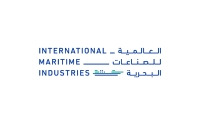
The King Salman International Complex for Maritime Industries and Services covers an area of approximately five km² and stretches four km along the eastern coast of Ras al-Khair. It comprises four operational zones, including seven dry docks and seventeen various types of piers. Contractors have completed significant works, including reclaiming approximately thirty-seven million m³ of soil and improving around 7.4 million m² of land. Additionally, they have constructed 4,500 linear m of conc...
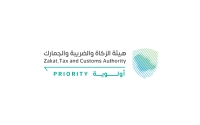
The Priority Program 'Saudi Authorized Economic Operator' is a program that adopts the concept of partnership between the Zakat, Tax, and Customs Authority (ZATCA) and commercial facilities. It serves as a means to enhance global supply chain security, facilitate trade, and elevate its advantages. It is considered a global standard in international trade. 1 The program has been part of the World Customs Organization's SAFE Framework of Standards to Secure and Facilitate Global Tr...
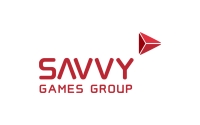
Savvy Games Group strategy is one of the national strategies aimed at enabling and supporting electronic games and esports in the Kingdom of Saudi Arabia. It was announced by the Crown Prince and Chairman of the Board of Directors of the Savvy Games Group, His Royal Highness Prince Mohammed Bin Salman Bin Abdulaziz, on September 29, 2022. He stated, 'Savvy is one part of our ambitious strategy aiming to make the Kingdom the global hub for the games and esports sector by 2030.' He adde...
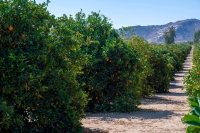
Agriculture in Najran Province is one of the essential economic sectors and represents a significant source of food security in the Kingdom of Saudi Arabia. The agricultural holdings in the province are estimated to cover an area of approximately 27,000 ha. Najran Province and its governorates possess diverse agricultural potential, including fertile soil, a moderate climate throughout the year, and geographical diversity between mountainous highlands and plains. Additionally, the province empl...
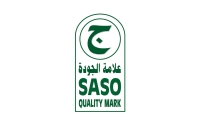
The Saudi Quality Mark is owned and approved by the Saudi Standards, Metrology, and Quality Organization (SASO). It indicates that the establishment has an effective quality management system that ensures the production of a product in compliance with the general technical regulation of the Quality Mark, the granting procedures, and the specific Saudi standards for this product. The Quality Mark represents the highest levels of proof and compliance with conformity assessment according to the in...
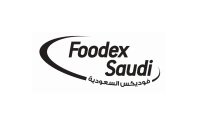
Foodex Saudi Expo is an international Saudi exhibition specializing in the food and beverage sector. It is one of the largest international markets specializing in the food sector, featuring food products from over fifty countries with the participation of 559 brands, of which 79 percent are international companies and 21 percent are local. The expo attracted more than eight thousand visitors specializing in the food industry. It is held at the Riyadh International Convention and Exhibition Cen...
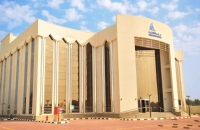
The Small and Medium Enterprises Forum is an event dedicated to small and medium enterprises. It was held on November 27, 2022, in partnership between the Chamber of Commerce in the Eastern Province and the General Authority for Small and Medium Enterprises (Monsha'at) . The forum took place at Asharqia Chamber's headquarters in Dammam . An accompanying exhibition was held alongside the Small and Medium Enterprises Forum, featuring participation from twenty-three financial, government...
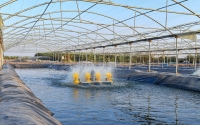
Tilapia Farming in the Kingdom of Saudi Arabia includes two types: Oreochromis spilurus and oreochromis niloticus. The first type, oreochromis spilurus, was introduced to the Kingdom in the early 1980s, before the establishment of the Fish Farming Center in Jeddah . This type was chosen for its ease of farming, economic feasibility, and flexibility in farming in marine, freshwater, and mixed-water environments. It is farmed in the Kingdom at research centers and some inland mixed-water farms. T...

Livestock in the Kingdom of Saudi Arabia is one of the economic resources in the Kingdom. It includes domesticated and tame animals like camels, horses, cattle, sheep, birds, bees, and similar animals, excluding wild creatures. Sheep farming in Saudi Arabia It is a historically long-standing activity in the Kingdom, as people have traditionally raised sheep due to their ability to adapt to different environments and the straightforward process of extracting and selling their products, including...
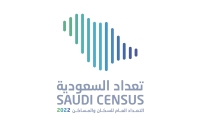
Saudi Census 2022 is the fifth census of population and housing in the Kingdom of Saudi Arabia , and the first electronic census in the history of the Kingdom. It involved the collection of special detailed information and data by filling in the census form that analyzes the data of individuals and families. The census was implemented by the General Authority for Statistics . It relied on the latest technologies, such as satellites and self-enumeration technology to accurately identify inhabite...

Yes, the Kingdom of Saudi Arabia supports the green economy, which is fundamentally based on knowledge of environmental economics aimed at addressing the interrelationship between human economies and the natural ecosystem, as well as the adverse effects of human activities on climate change and global warming. It relies on green energy sources, which are generated from renewable energy, to preserve energy resources. The Kingdom has moved to achieve Vision 2030, and its strategy encompasses seve...